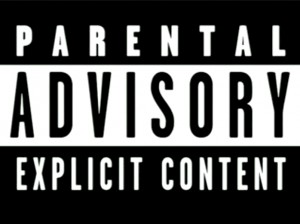Some things shouldn’t be said, but when they are, and when they involve contemptible views about blacks otherwise unmentioned in polite company, the condemnation is swift. It’s as if the opportunity to express outrage, at least for whites, is cathartic, functioning to assuage their guilty consciences for the many centuries of misdeeds for which they are the beneficiaries.
What, then, are we to make when African-Americans celebrate the vicious and stereotypical view that blacks, particularly black males, are animalistic and anti-social? And what are we to make when this disturbing embrace derives from the most unexpected of places: the black establishment?
Michael Eric Dyson is a well-known black intellectual who teaches sociology at Georgetown. His course, “Sociology of Hip-Hop—Urban Theodicy of Jay-Z,” is one of the hottest academic offerings on campus, oversubscribed by undergrads from one of the nation’s prestigious universities. Students diligently tap out notes on their laptops as Dyson holds forth on urban black culture. “Hip-hop has globalized a conception of blackness that has had a political impact, whether or not it had a political intent,” he told the Washington Post.
Dyson’s correct. Hip-hop has marketed a “conception of blackness” around the world, but what exactly is that image? Though the genre is varied and diverse, Dyson builds his class around the rap performer Jay-Z, so it seems fair to answer the question by focusing on this one musician whose impact is so great that he has become the source of pedagogical interest.
Jay-Z’s one of the most successful rappers ever. The five-time Grammy winner holds the record for most number one albums for a solo artist on the Billboard 200 with eleven, and he has sold roughly 50 million albums worldwide. His music, often glorifying violence, includes the hit, “Show You How,” in which he sings: “Listen man, get a crate, some crack and some house slippers; a newspaper, a lookout boy, and get your chips up; or get a gun, a mask, an escape route; some duct-tape’ll make ’em take ya to the house.” Perhaps better known is his “99 Problems (But the Bitch Ain’t One).”
The tough-guy act is no act. Shawn Corey Carter, Jay-Z’s real name, began dealing drugs at 13 in the poverty-stricken Brooklyn neighborhood of Bedford-Stuyvesant and lived the rough-and-tumble “gangsta” life until his music career began to blossom. But his violent past, which he never disavowed, was never really past. In 1999, Jay-Z was accused of stabbing a record executive with a five-inch blade in a nightclub, though he pleaded guilty to a misdemeanor charge resulting in a sentence of three years probation.
Peddling the “angry black man” shtick that trades in all the worst stereotypes of African-American may be no crime. It may even be understood as a manifestation of self-hate whereby slaves’ descendants have perversely come to embrace the plantation owner’s debased view of his human property. But why do those who should know better endorse the self-destructive ethos?
Oprah, for one, featured Jay-Z in a laudatory segment on her OWN cable network, during which the rapper modestly claimed, “Hip-Hop has done more for racial relations than most cultural icons, save Martin Luther King, Jr.,” while President Obama, whose own life story is a powerful refutation of gangsta rap values, proudly tells of listening to Jay-Z on his iPod and even invited the rapper to his 50th birthday party.
But few are fighting harder than Dyson to dignify an undignified image of blacks. In addition to venerating Jay-Z—Dyson proudly tells of sharing “some rhymes” with the rapper—the Georgetown professor also tore into Bill Cosby for the actor’s criticism of the sorts of anti-social values rappers like Jay-Z champion. Dyson castigated Cosby for his “Blame-the-Poor Tour,” ignoring the possibility that the same values called out by the actor may themselves help perpetuate black disenfranchisement.
Why Dyson and others in the black establishment sanction those who malign their own race is a matter of speculation. In Darwin’s Athletes, John Milton Hoberman writes, “Identification with athletes also permits the black intellectual to distinguish himself from white cultural standards and a conservative black middle-class establishment that has long been perceived as having cut itself off from the black masses.” What is true about sports for the black establishment also seems to apply to Hip-hop. Indeed, Dyson lauded Michael Jordan for his “herculean cultural heroism.”
Regrettably, black endorsement of the peddlers of black self-hate is distressingly common. As a result, genuine herculean cultural heroism, not some bogus example of it, will be required by brave black leaders to address a malignancy in African-Americans.
As Jay-Z might say, using urban lingo implying approval, “Word!”


Leave a Reply